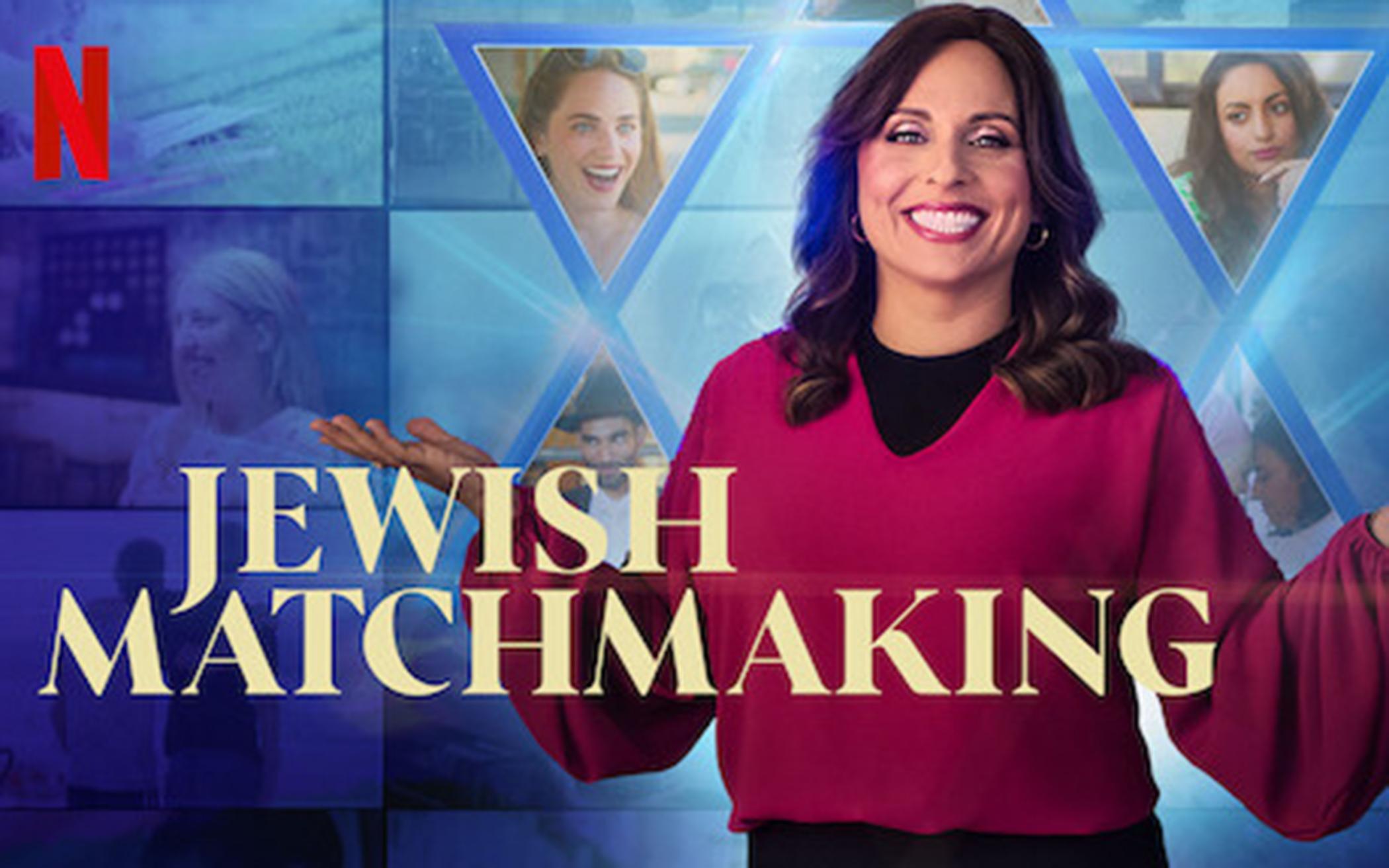I used to joke that matchmaking was my dream job, as I liked to dabble in it whenever the opportunity arose (which it did only twice—one marriage ended in divorce after 20 years, and the other one is going strong after nine years). I even have a T-shirt that says “Yenta” on it, a gift from one of my two “matches,” although apparently that word for matchmaker comes from Fiddler on the Roof, not the real Hebrew word, which is shadchan (שדכן).
All this to say I do enjoy the ins and outs of pairing up two people who don’t know one another and seeing if sparks fly (and hopefully not tomatoes). Ostensibly, The Bachelor franchise covers this topic ad nauseam, but having covered several local contestants during my years with The Grand Rapids Press, I am well and truly retired from ever watching that show again (although I love running into my old pal Bachelor Brad, a top-five contender on the second season of The Bachelorette and now a soccer parent like myself.) When I did have to watch it—for work!—I liked the hometown meetings the best, when the bachelor or bachelorette would journey to the hometowns of the top contenders and meet their families and friends.
Meeting family is a big part of two newer TV franchises, the Netflix entities Indian Matchmaker (a huge hit during the early days of the pandemic) and the minty fresh Jewish Matchmaking. Both shows also have a strong religious component, as potential matches often desire to be paired with someone who shares or is devoted to their faith beliefs at the same level.
In Jewish Matchmaking, professional matchmaker Aleeza Ben Shalom, a devout orthodox Jew whose husband and family are shown praying together, carefully matches orthodox people with other orthodox people, or nonobservant Jews with those who might celebrate high holidays such as Channukkah but otherwise do not attend temple. It was fascinating to see the range of people desiring a match, from a freewheeling lady who wanted someone who made her feel “passion” to a conservative woman from an orthodox community who dressed nearly Amish and still lived at home with her parents. Some of the participants were shallow and consumed with worldly pleasures and wants, while others were pious and deeply reverent in their faith.
What makes this show so endearing is its matchmaker. Ben Shalom lives into her last name, with her warm and loving presence and her desire to make matches based on values and virtues as much as sparks and shared interests.
Less endearing is Sima Taparia, the self-described top matchmaker of Mumbai, India.
“In India we don’t say ‘arranged marriage.’ There is ‘marriage’ and then ‘love marriage,’” she says. India’s centuries-old tradition of arranged marriages, as opposed to unions based on mutual attraction and then love, is infused into this show. Taparia is fun to watch at times, but her bossiness and nosiness start to get annoying. The potential matches on this series also range from those who want someone filthy rich and beautiful to those seeking a partner who shares their deeper values and commitment to the Hindu religion. Obviously, because of the culture of arranged marriages, parents are much more involved in this series, weighing in almost as much as the man or woman being matched. (The show has been critiqued for glossing over the fact that almost all participants are members of the elite caste.)
Both shows are entertaining and thought provoking, providing insight to the Jewish and Hindu cultures and religions. What is the basis for a flourishing lifetime commitment? What would a Christian Matchmaking show look like? The show could also be a good jumping-off point for conversations with teenagers about what to look for in a potential mate. What is a soul mate and is there just one person for everyone? Besides some sexual innuendo and a few instances of profanity, both shows are mild, content wise (which you can’t say about The Bachelor).
The sweetest element to both shows are the older couples, married for decades, who muse about true love and commitment, and whose vignettes bookend each episode. Those couples can teach us all volumes about what it takes to flourish in marriage, far beyond that awkward, exciting first date. (Netflix)
About the Author
Lorilee Craker, a native of Winnipeg, Man., lives in Grand Rapids, Mich. The author of 16 books, she is the Mixed Media editor of The Banner. Her latest book is called Eat Like a Heroine: Nourish and Flourish With Bookish Stars From Anne of Green Gables to Zora Neale Hurston.

